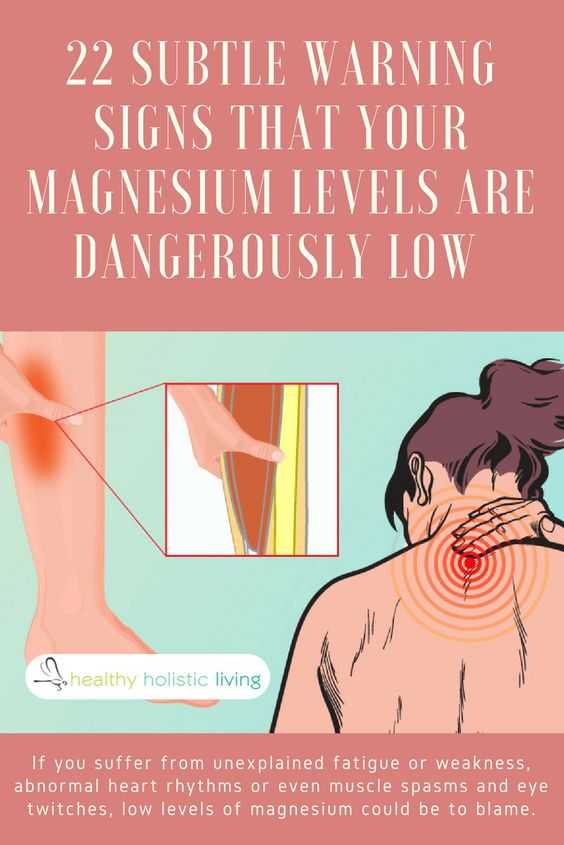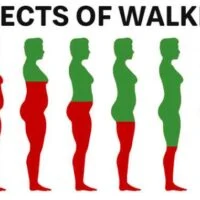Magnesium is a mineral used by every organ in your body, especially your heart, muscles, and kidneys.1 If you suffer from unexplained fatigue or weakness, abnormal heart rhythms or even muscle spasms and eye twitches, low levels of magnesium could be to blame.
If you’ve recently had a blood test, you might assume it would show a magnesium deficiency. But only 1 percent of magnesium in your body is distributed in your blood, making a simple sample of magnesium from a serum magnesium blood test not very useful.
Most magnesium is stored in your bones and organs, where it is used for many biological functions. Yet, it’s quite possible to be deficient and not know it, which is why magnesium deficiency has been dubbed the “invisible deficiency.”
By some estimates, up to 80 percent of Americans are not getting enough magnesium and may be deficient. Other research shows only about 25 percent of US adults are getting the recommended daily amount of 310 to 320 milligrams (mg) for women and 400 to 420 for men.2
Even more concerning, consuming even this amount is “just enough to ward off outright deficiency,” according to Dr. Carolyn Dean, a medical and naturopathic doctor.

Magnesium Deficiency May Trigger 22 Medical Conditions
Magnesium is often thought of primarily as a mineral for your heart and bones, but this is misleading. Researchers have now detected 3,751 magnesium-binding sites on human proteins, indicating that its role in human health and disease may have been vastly underestimated.3
Magnesium is also found in more than 300 different enzymes in your body and plays a role in your body’s detoxification processes, making it important for helping to prevent damage from environmental chemicals, heavy metals, and other toxins. In addition, magnesium is necessary for:
- Activating muscles and nerves
- Creating energy in your body by activating adenosine triphosphate (ATP)
- Helping digest proteins, carbohydrates, and fats
- Serving as a building block for RNA and DNA synthesis
- Acting as a precursor for neurotransmitters like serotonin
Dr. Dean has studied and written about magnesium for more than 15 years. The latest edition of her book, The Magnesium Miracle, came out in 2014 and in it, you can learn about 22 medical areas that magnesium deficiency triggers or causes, all of which have all been scientifically proven. This includes:4
- Anxiety/panic attacks
- Asthma
- Blood clots
- Bowel diseases
- Cystitis
- Depression
- Detoxification
- Diabetes
- Fatigue
- Heart disease
- Hypertension
- Hypoglycemia
- Insomnia
- Kidney disease
- Liver disease
- Migraine
- Musculoskeletal conditions
- Nerve problems
- Obstetrics/gynecology
- Osteoporosis
- Raynaud’s syndrome
- Tooth decay
Early warning signs of magnesium deficiency include loss of appetite, headache, nausea, fatigue, and weakness.
An ongoing magnesium deficiency can lead to more serious symptoms, including:
- Numbness and tingling
- Muscle contractions and cramps
- Seizures
- Personality changes
- Abnormal heart rhythms
- Coronary spasms
This deficiency just might be might be the source of all your symptoms download our free comprehensive guide: “The Magnesium Solution Solving the Biggest Deficiency in America”
The Role of Magnesium in Diabetes, Cancer, and More

Most people do not think about magnesium when they think about how to prevent chronic disease, but it plays an essential role. For instance, there have been several significant studies about magnesium’s role in keeping your metabolism running efficiently—specifically in terms of insulin sensitivity, glucose regulation, and protection from type 2 diabetes.
Higher magnesium intake reduces risk of impaired glucose and insulin metabolism and slows progression from pre-diabetes to diabetes in middle-aged Americans.5 Researchers stated, “Magnesium intake may be particularly beneficial in offsetting your risk of developing diabetes, if you are high risk.”
Multiple studies have also shown that higher magnesium intake is associated with a higher bone mineral density in both men and women,6 and research from Norway has even found an association between magnesium in drinking water and a lower risk of hip fractures.7
Magnesium may even help lower your risk of cancer, and a study published in the American Journal of Clinical Nutrition showed that higher intakes of dietary magnesium were associated with a lower risk of colorectal tumors.8
Results from the meta-analysis indicated that for every 100-mg increase in magnesium intake, the risk of colorectal tumor decreased by 13 percent, while the risk of colorectal cancer was lowered by 12 percent. The researchers noted magnesium’s anti-cancer effects may be related to its ability to reduce insulin resistance, which may positively affect the development of tumors.
Surprising Factors That Influence Your Magnesium Levels
Seaweed and green leafy vegetables like spinach and Swiss chard can be excellent sources of magnesium, as are some beans, nuts, and seeds, like pumpkin, sunflower, and sesame seeds. Avocados also contain magnesium. Juicing your vegetables is an excellent option to ensure you’re getting enough of them in your diet.
However, most foods grown today are deficient in magnesium and other minerals, so getting enough isn’t simply a matter of eating magnesium-rich foods (although this is important too). According to Dr. Dean:
“Magnesium is farmed out of the soil much more than calcium… A hundred years ago, we would get maybe 500 milligrams of magnesium in an ordinary diet. Now we’re lucky to get 200 milligrams.”
Herbicides, like glyphosate, also act as chelators, effectively blocking the uptake and utilization of minerals in so many foods grown today. As a result, it can be quite difficult to find truly magnesium-rich foods. Cooking and processing further deplete magnesium.
Meanwhile, certain foods can actually influence your body’s absorption of magnesium. If you drink alcohol in excess, for instance, it may interfere with your body’s absorption of vitamin D, which in turn is helpful for magnesium absorption. If you eat a lot of sugar, this can also cause your body to excrete magnesium through your kidneys, “resulting in a net loss,” according to Dr. Danine Fruge, associate medical director at the Pritikin Longevity Center in Florida.9 The following factors are also associated with lower magnesium levels:10
- Excessive intake of soda or caffeine
- Menopause
- Older age (older adults are more likely to be magnesium deficient because absorption decreases with age and the elderly are more likely to take medications that can interfere with absorption)
- Certain medications, including diuretics, certain antibiotics (such as gentamicin and tobramycin), corticosteroids (prednisone or Deltasone), antacids, and insulin
- An unhealthy digestive system, which impairs your body’s ability to absorb magnesium (Crohn’s disease, leaky gut, etc.)
Calcium, Vitamin K2, and Vitamin D Must Be Balanced with Magnesium
It may seem like you could remedy the risks of low magnesium simply by taking a supplement, but it’s not quite that simple. When you’re taking magnesium, you need to consider calcium, vitamin D3 and vitamin K2 as well, since these all work synergistically with one another. Excessive amounts of calcium without the counterbalance of magnesium can lead to a heart attack and sudden death, for instance. Research on the Paleolithic or caveman diet has shown that the ratio of calcium to magnesium in the diet that our bodies evolved to eat is 1-to-1.11 Americans in general tend to have a higher calcium-to-magnesium ratio in their diet, averaging about 3.5-to-1.
If you have too much calcium and not enough magnesium, your muscles will tend to go into spasm, and this has consequences for your heart in particular. As explained by Dr. Dean:
“What happens is, the muscle and nerve function that magnesium is responsible for is diminished. If you don’t have enough magnesium, your muscles go into spasm. Calcium causes muscle to contract. If you had a balance, the muscles would do their thing. They’d relax, contract, and create their activity.”
When balancing calcium and magnesium, also keep in mind that vitamins K2 and D need to be considered. These four nutrients perform an intricate dance together, with one supporting the other. Lack of balance between these nutrients is one of the reasons why calcium supplements have become associated with an increased risk of heart attacks and stroke, and why some people experience vitamin D toxicity. Part of the explanation for these adverse side effects is that vitamin K2 keeps calcium in its appropriate place. If you’re K2 deficient, added calcium can cause more problems than it solves, by accumulating in the wrong places, like your soft tissue.
Similarly, if you opt for oral vitamin D, you need to also consume it in your food or take supplemental vitamin K2 and more magnesium. Taking mega doses of vitamin D supplements without sufficient amounts of K2 and magnesium can lead to vitamin D toxicity and magnesium deficiency symptoms, which include inappropriate calcification that may damage your heart.
Tips for Increasing Your Magnesium Levels
One way to really increase your magnesium, as well as many other important plant-based nutrients, is by juicing your greens. I typically drink one pint to one quart of fresh green vegetable juice every day, and this is one of my primary sources of magnesium. Organic foods may have more magnesium if grown in nutrient-rich soils but it is very difficult to make that determination. If you opt for a supplement, be aware that there are a wide variety of magnesium supplements on the market, because magnesium must be bound to another substance. There’s simply no such thing as a 100 percent magnesium supplement.
The substance used in any given compound can affect the absorption and bioavailability of the magnesium and may provide slightly different, or targeted, health benefits. The table that follows summarizes some of the differences between the various forms. Magnesium threonate and citrate are some of the best sources, as it seems to penetrate cell membranes, including your mitochondria, which results in higher energy levels. Additionally, it also penetrates your blood-brain barrier and seems to do wonders to treat and prevent dementia and improve memory. If you take a supplement, you can use the “bowel test” to determine if you’re taking too much magnesium. Dr. Dean explains:12
“The best way to tell if you are getting enough magnesium is the “bowel test”. You know when you have too much magnesium when your stools become loose. This, in fact, may be a blessing for people with constipation… [which] is one of the many ways magnesium deficiency manifests.”
Benefits of Magnesium Oil
Besides taking a supplement, another way to improve your magnesium status is to take regular Epsom salt baths or foot baths. Epsom salt is a magnesium sulfate that can absorb into your body through your skin. Magnesium oil can also be used for topical application and absorption. Whatever supplement you choose, be sure to avoid any containing magnesium stearate, a common but potentially hazardous additive.
- Magnesium glycinate is a chelated form of magnesium that tends to provide the highest levels of absorption and bioavailability and is typically considered ideal for those who are trying to correct a deficiency.
- Magnesium oxide is a non-chelated type of magnesium, bound to an organic acid or a fatty acid. Contains 60 percent magnesium, and has stool softening properties
- Magnesium chloride/Magnesium lactate contain only 12 percent magnesium, but has better absorption than others, such as magnesium oxide, which contains five times more magnesium
- Magnesium sulfate/Magnesium hydroxide (milk of magnesia) are typically used as laxatives. Be aware that it’s easy to overdose on these, so ONLY take as directed
- Magnesium carbonate, which has antacid properties, contains 45 percent magnesium
- Magnesium taurate contains a combination of magnesium and taurine, an amino acid. Together, they tend to provide a calming effect on your body and mind
- Magnesium citrate is magnesium with citric acid, which like most magnesium supplements has laxative properties but is well absorbed and cost-effective
- Magnesium threonate is a newer, emerging type of magnesium supplement that appears promising, primarily due to its superior ability to penetrate the mitochondrial membrane, and may be the best magnesium supplement on the market
While magnesium supplements can be beneficial, they’ve been known to:
- Tough to swallow
- Low in bioavailability
- Hard to tolerate
- Not location specific

So, if you’re looking for relief that will last, myKoreEssentials transdermal magnesium is the perfect solution. No digestive discomfort – just fast-acting 100% pure magnesium oil to soothe your pain and lower inflammation within 2-3 simple sprays.
Are you considering supplementing with Magnesium?
BE CAREFUL
Lots of magnesium supplements cause stomach upset and even diarrhea. I use myKore Essentials Topical Magnesium spray not only to ensure that I am getting the proper amount of magnesium my body needs to function optimally but also to help with pain, sleep and the occasional migraine.
>>> You might be surprised how many symptoms magnesium deficiency can cause from heart disease to anxiety and insomnia. This deficiency just might be might be the source of all your symptoms download our Free comprehensive guide: “The Magnesium Solution Solving the Biggest Deficiency in America” <<<




